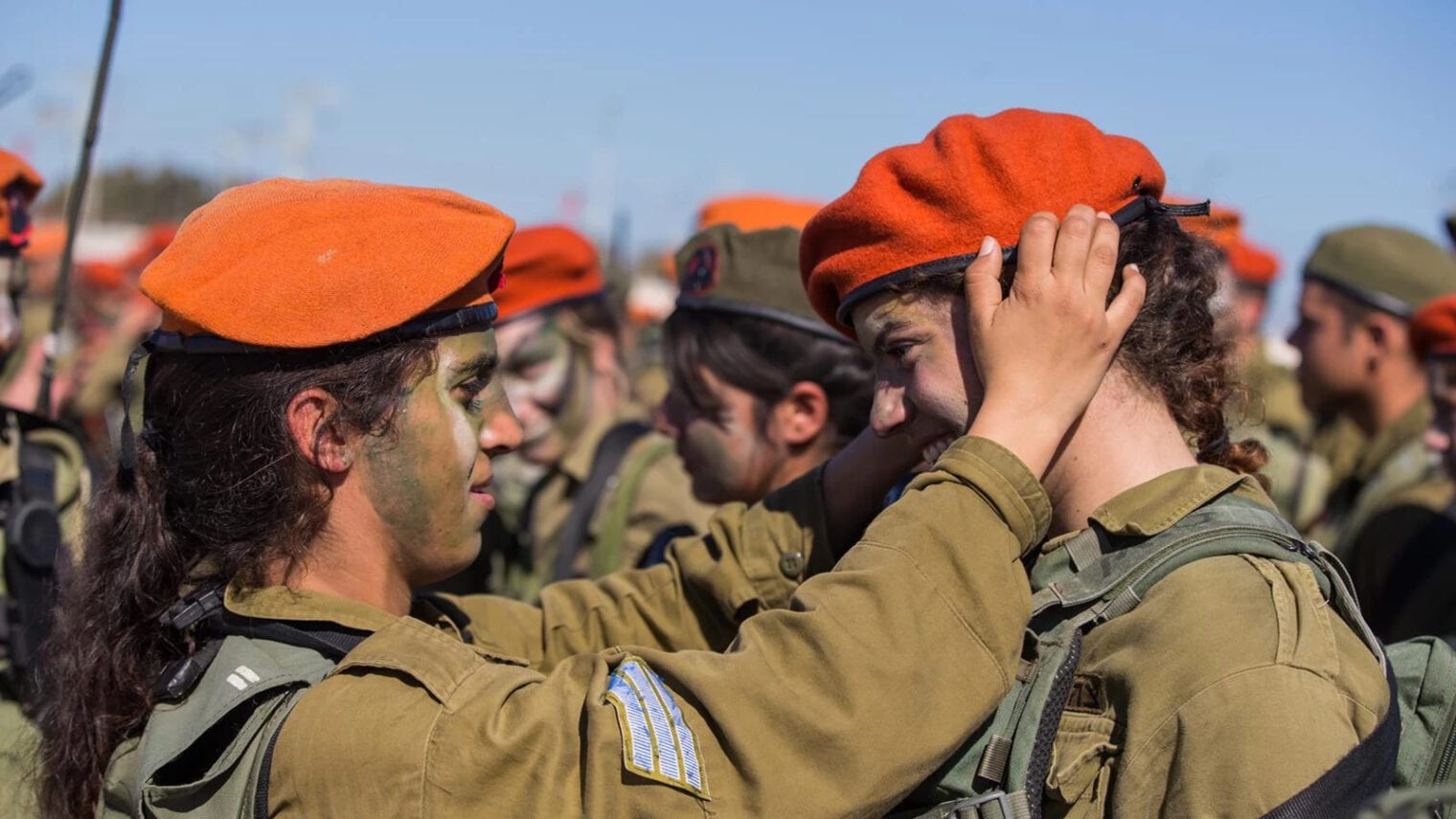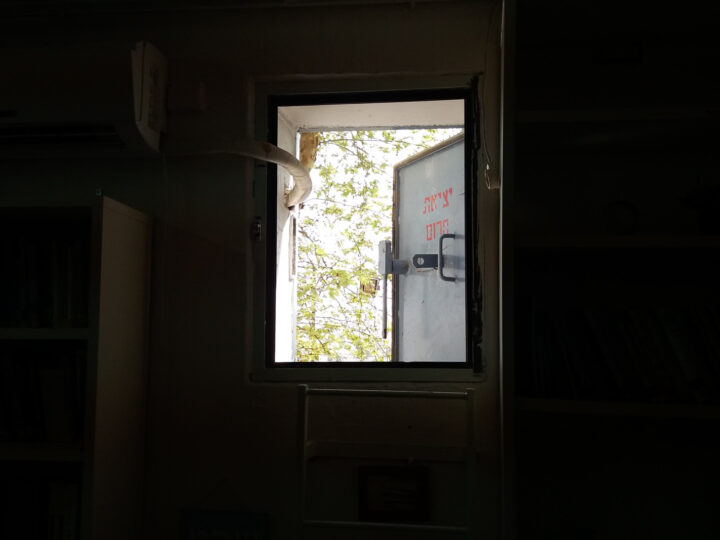We knew it would happen one day, but when it did, it suddenly seemed way too soon. Our carefree 16-year-old daughter had now received her official tzav rishon (first IDF callup).
On November 18, she was ordered to present herself at 8am at the Bakum, the base where new soldiers are processed.
Warned of a long day (“bring something to eat and drink”), the schedule included a physical exam, personal interview and psychometric test. The website for new recruits advised to practice for this test, as the questions and length can be grueling.
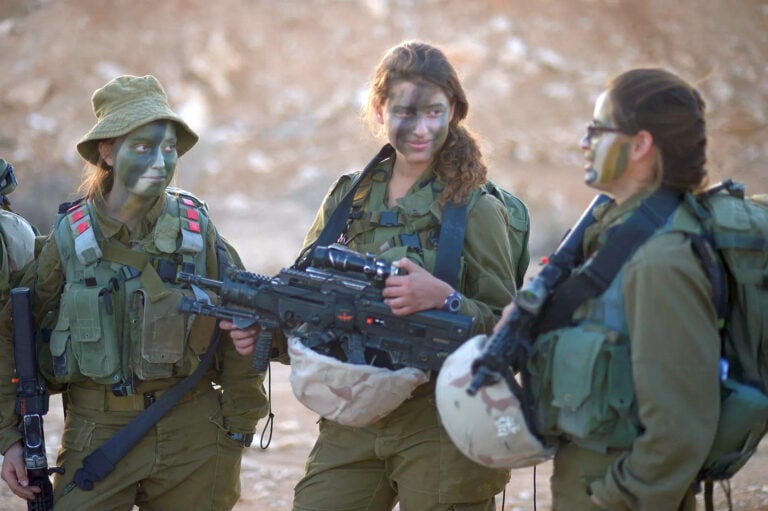
Gabriela had never been particularly gung-ho about doing army service. This was due to an unfortunate experience when her brother was serving in the Duvdevan counter-terrorism unit.
In a ceremony to mark the end of training, all the families were invited to the base. We got to have Turkish coffee in a mockup Arab shuk, to see their weapons (machine guns, pistols and grenades) and sit in armored vehicles.
Then they screened a documentary showing the type of missions the brigade undertakes, including undercover operations in dense urban areas in which they often wear civilian clothes to disguise themselves. If I was shocked and unsettled by the way-too-graphic and Fauda-like scenes, Gabi at eight years old was downright fearful.
After this reality check, she would occasionally say she didn’t think she even wanted to do the army. We decided not to argue. After all, as immigrants who came to the country in our 20s, neither my husband nor I had done military service ourselves.
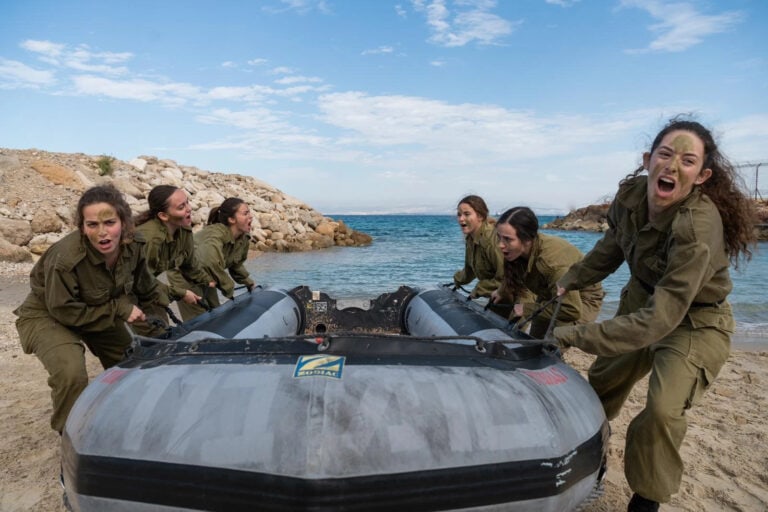
As the years passed, we didn’t have many expectations for our daughter in the army. Her fluency in three languages, we thought, would likely make her a good fit for intelligence or some kind of foreign communications position.
As Gabi tells it: “I never gave the army much thought. I knew it’s something that is a part of the Israeli reality and this meant that in the future I would be thinking about it.”
October 7 changed everything
I have to admit that before the Hamas massacre on October 7, the word tazpitanit (surveillance soldier) would not have meant anything to me.
This changed dramatically when we heard the word over and over again on TV coverage that showed how these beautiful young women had been torched to death or kidnapped by the terrorists who overran the Nahal Oz base at 6:30am on that fateful day.
Now etched in our minds are gruesome images of the once state-of-the art command center with its multiple workstations reduced to sooty rubble.
There was a newfound nationwide admiration for tazpitaniot. Referred to by many as “the eyes of the army,” they are part of the Combat Intelligence Corps. They spend long hours glued in front of computer screens observing the country’s borders and providing real-time intelligence to soldiers in the field 24/7.
Moreover, it was revealed that they had given warnings of suspicious enemy activity prior to October 7, which had been disregarded by their senior officers and intelligence officials.
Jaw-dropping bravery
The word “closed base” also took on new meaning for Gabi as she started to think about whether she wanted to be a jobnikit (slang for a soldier assigned to desk job) returning home each day, or to be on a closed base far from home and visiting the family sporadically.
Situated one kilometer from Gaza, the tazpitaniot on Nahal Oz had all chosen the latter.
From October 7, we also got to see the jaw-dropping bravery of women serving in the Caracal combat battalion. According to the IDF, it was the first time in history that an all-female tank crew engaged in active combat.
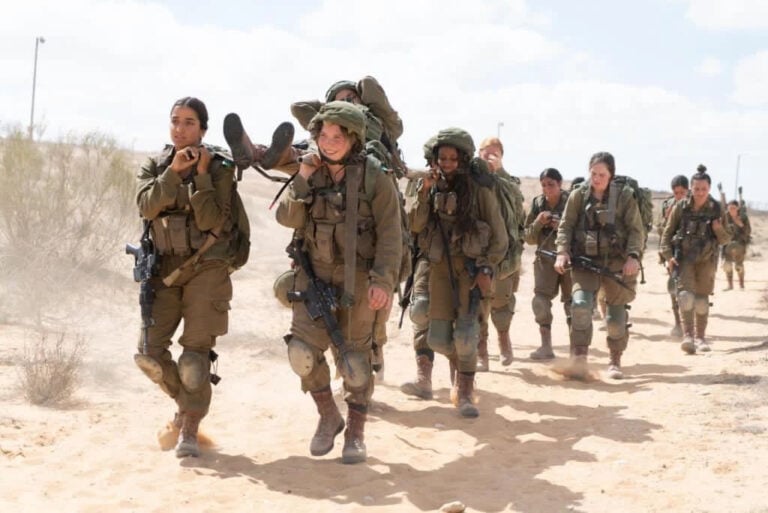
Based on the border with Egypt at the Nitsana base 40 kilometers south of the Gaza Strip, these courageous 20-year-olds did not think twice about getting into their tanks and an armored vehicle when they received word of what was transpiring along the Gaza Strip border on October 7.
News reports tell how they even had to improvise and learn about certain weapons on the ground as they faced dozens of Hamas terrorists with AK-47s and RPGs in a 17-hour battle. Miraculously, it ended with the battalion liberating Kibbutz Sufa from the terrorists.
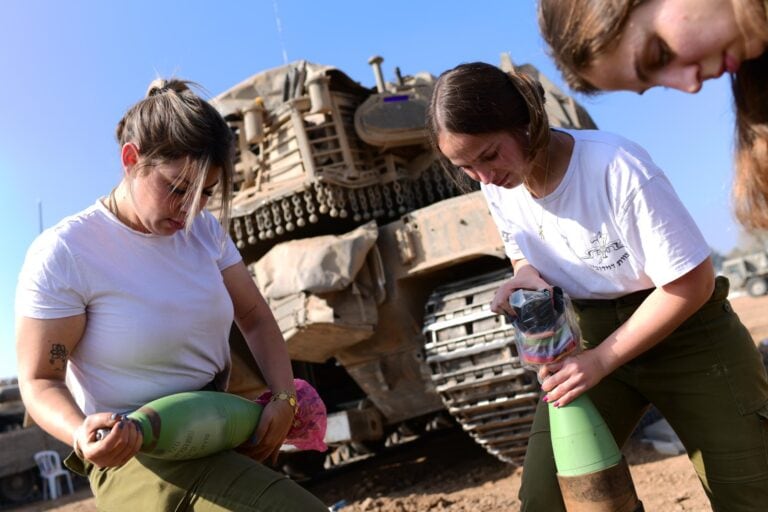
There is no doubt that October 7 changed the way Gabi (and I) viewed her upcoming tzav rishon.
“If not for the war, I would still be looking at army service as something I must do and hoping that the two years pass quickly,” she says.
“Now I feel my priorities have changed and I want a meaningful role which is not only interesting for me but beneficial for the country. I feel really proud that I am starting the process which will lead me to being in a position where I can help defend our small country with so many enemies.”
From tzav rishon to enlistment in 2025, she knows she has all my support.




